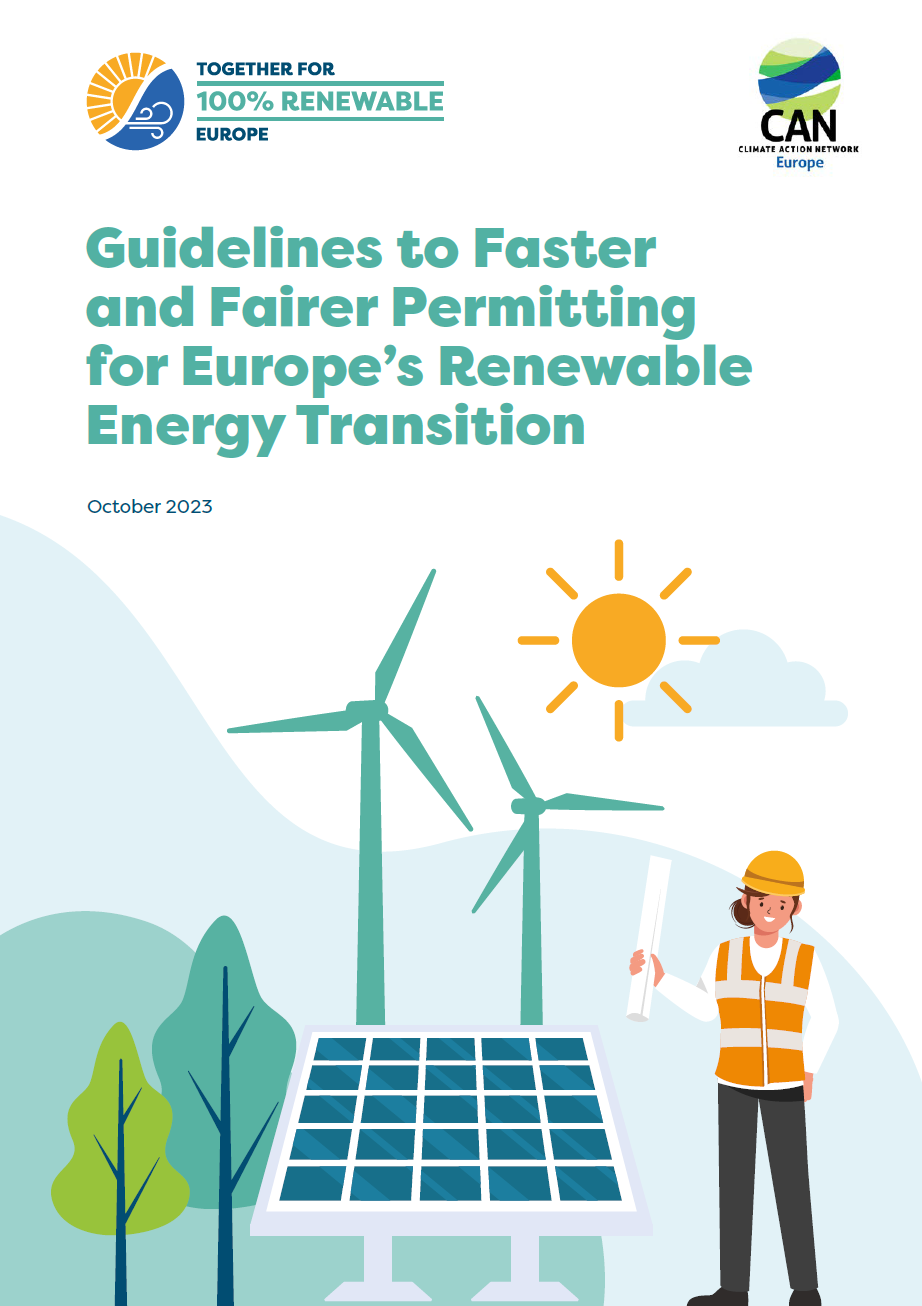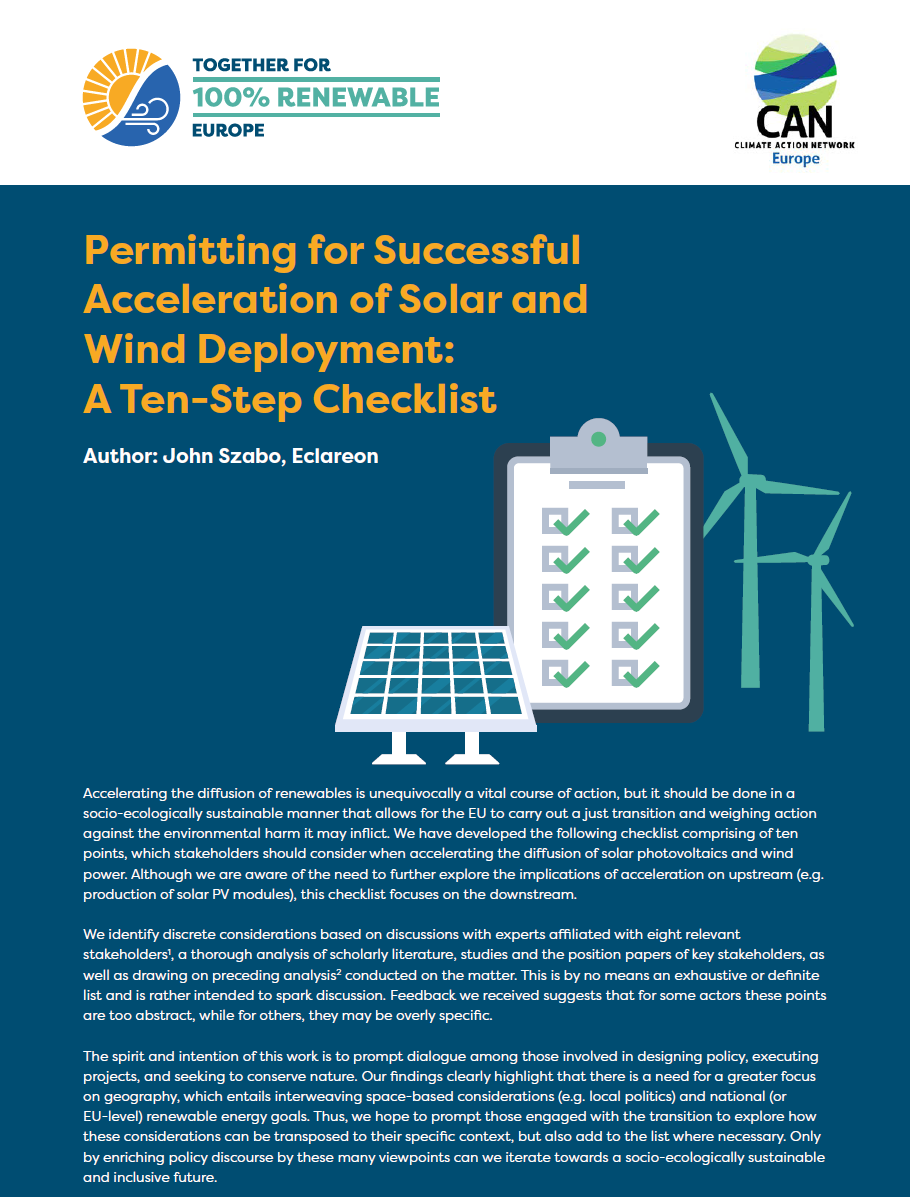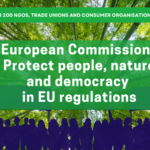CAN Europe’s latest briefing provides an overview of permitting related policy and regulatory landscape. The briefing offers insights into implementation of the most recent permitting rules in some of the Member States, calling for attention to the need for proper monitoring and robust implementation.
The Emergency Council Regulation on the acceleration of renewable energy deployment last December and the recent adoption of revised Renewable Energy Directive (RED III) were key steps taken by the EU to further simplify and speed up permitting procedures. Yet, case studies from six EU member states (Czechia, Estonia, Germany, Lithuania, Portugal and Romania) reveal both progress and areas in the need of significant improvement.
New exemptions introduced in environmental assessments have raised concerns about potential impacts on biodiversity and local community engagement. Moreover, common barriers for new wind and solar projects include insufficient capacity in the distribution network or obstacles related to land-use planning. On top of that, burdensome and lengthy administrative processes are adding time and complexity to permitting procedures due to a lack of staff and digitalisation of the permitting process.
In response, working with Eclareon, CAN Europe has developed a ten-step checklist for permitting success for wind and solar development that can be a guide for governments, local authorities and developers to avail of . The checklist underlines the need for early public engagement and benefits local communities while maximising synergies with nature protection, among other steps. This will help build public support for local renewable energy projects, helping to reduce the likelihood of objections and make the permitting process much smoother and quicker.
“The revised Renewable Energy Directive (RED III) with its comprehensive framework encompassing new permitting rules hold promise for accelerating renewable energy deployment and meeting the EU’s climate and energy targets. However, success of delivery on the ground lies in its implementation at the hands of Member States. It’s their responsibility to implement these rules meticulously ensuring public engagement and community ownership, and synergies with nature protection.” – Seda Orhan, Renewable Energy Campaigner at CAN Europe.





